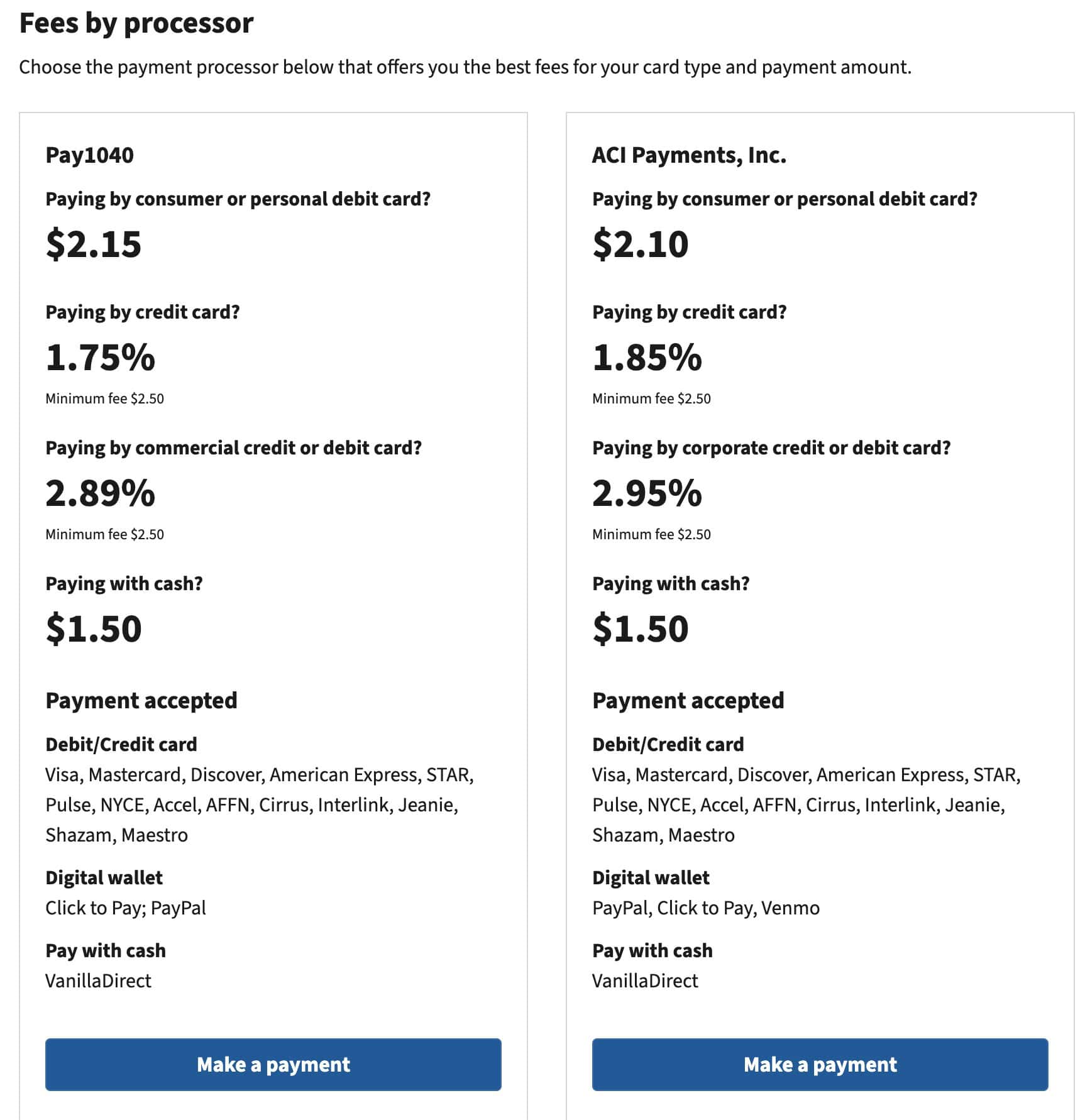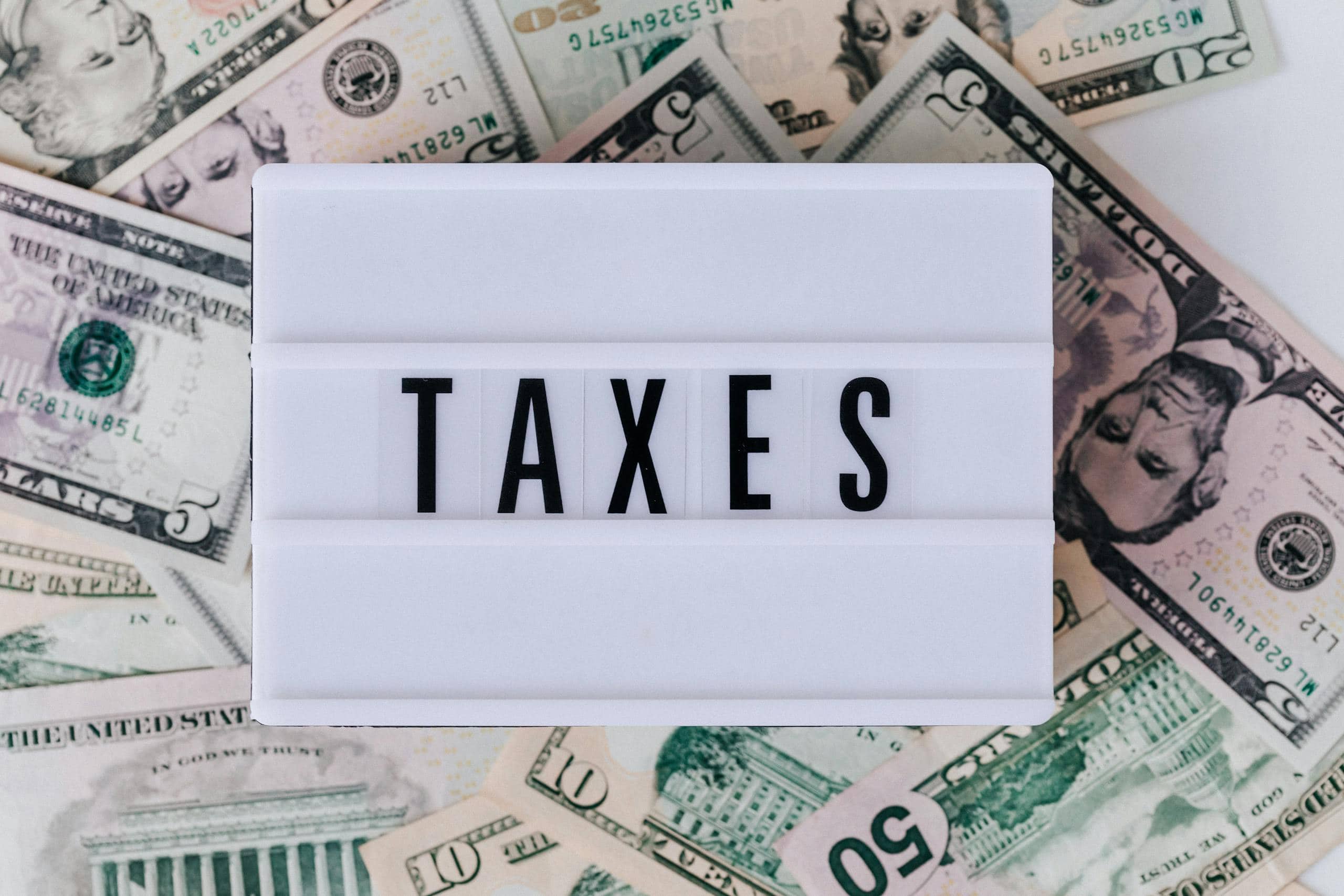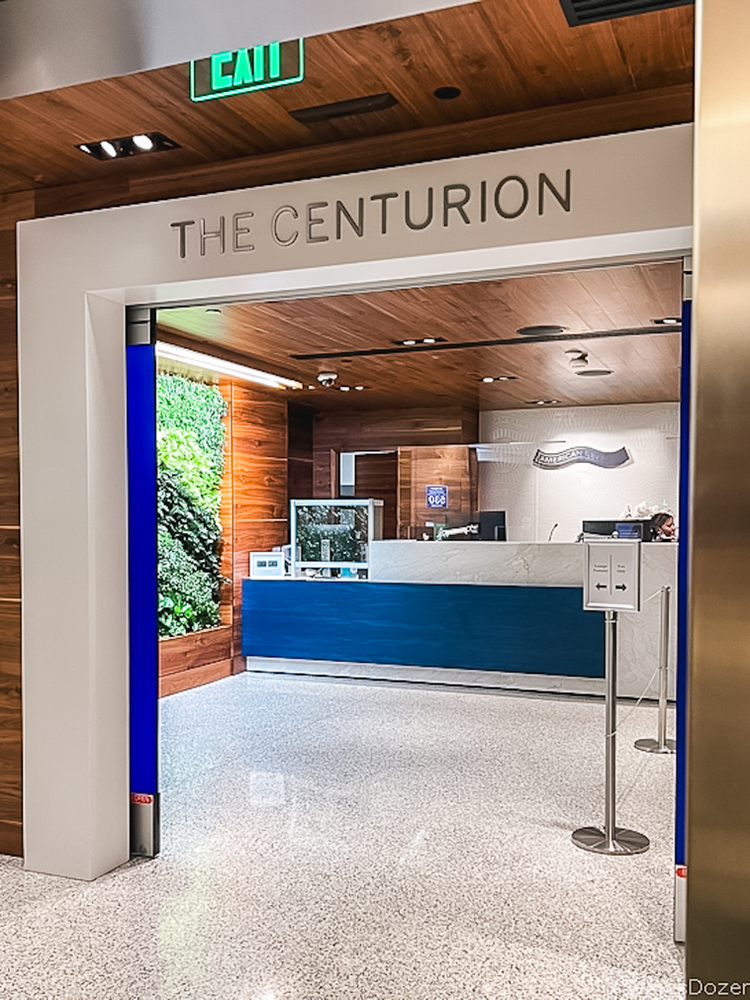4 Times It Makes Sense To Pay Taxes With A Credit Card This April
Let’s be real: tax season isn’t exactly the highlight of the year. But if you play it right, that dreaded bill could actually unlock your next business class flight.
Yes, you can pay taxes with a credit card. And yes, there’s a fee. But depending on which card you use and how many points you can earn, it can absolutely be worth it. I personally paid my taxes with a credit card last year and used the points to book a business class flight to Europe (and I’ll be doing the same this year).
The trick is knowing when it makes sense to use a credit card—and when it doesn’t.
Paying taxes with a card is one of the most underrated ways to hit your minimum spend requirement without spending on things you don’t need. So if you have to pay Uncle Sam, you might as well score some points (or at least airport lounge access) out of it, right?
Let’s walk through when it’s worth it, how to do it, and the best cards to use.
Can You Pay Taxes with a Credit Card?
Yes, you can. The IRS doesn’t process the payments themselves—they work with third-party payment processors that handle the transaction for a fee. You’ll see this fee at checkout (if you’re using Turbotax or anything else), and it’s usually based on a percentage of your tax bill.
As of now, these are the two main options with the lowest fees right on the IRS website:

Pay1040.com
- Credit card fee: 1.75%
- Debit card: $2.15 flat
- Commercial card: 2.89%
ACI Payments, Inc.
- Credit card fee: 1.85%
- Debit card: $2.10
- Commercial card: 2.95%
Keep in mind: these fees don’t count toward your taxes and are often not tax-deductible unless you’re a business. The IRS page with the fee information states “Card processing fees are tax deductible for business taxes.” But it doesn’t have a lot of specifics – I’d recommend checking with your tax advisor on this.
When Does It Actually Makes Sense to Pay Taxes with a Credit Card?
There are a few key scenarios where paying your taxes with a credit card isn’t just fine—it’s genuinely smart. Here’s when it makes the most sense:
1. You’re Earning a Massive Welcome Bonus On a High Minimum Spend Card

This is where tax payments shine. If you’ve got a new card with a high minimum spend requirement that you wouldn’t normally meet, your tax bill can knock that out in one transaction—without needing to buy anything extra.
I did this last year because I wanted the welcome bonus from the Business Platinum Card® from American Express – which currently offers 150,000 Membership Rewards® points after you spend $20,000 in the first 3 months.
150,000 is a ton of points, but I don’t usually spend $20k in three months. In this instance, I paid both my and my partner’s tax bill on this card (because you can also pay estimated taxes with a card), and immediately hit the minimum spend.
Benefits:
- Points Earned: 150,000 Welcome Bonus + 20,000 points for the tax bill itself = 170,000 points
- Value: Amex points are worth at least 2¢ each: 170,000 * .02 = $3,400
- But, since you’re Inside the Upgrade, you know that you can book business class flights for ~50k-80k points each, so you can definitely get two business class flights from this bonus when you transfer your points to partners like Air France or Emirates.
Cost:
- Tax Processing Fee: $20,000 * $0.289 = $578
- Annual Fee: $695
- Total Cost: $1,273
Total Profit: $3,400 minimum benefit -$1,273 cost = $2,127 profit.
Even without that profit analysis, I know I would pay $1,200 for two business-class flights, not to mention the amazing Centurion Lounge access that comes with the Amex Platinum (which is a huge part of how I determine if the Amex Platinum is worth it).
2. You’re earning a Great Welcome Bonus on a Lower Minimum Spend Card
What if you don’t have a giant tax bill? This applies to cards with lower minimum spends and more normal sign up bonuses as well.
The Chase Sapphire Preferred® Card currently offers 60,000 bonus points after you spend $4,000 in purchases in your first 3 months from account opening (learn more) . You can almost certainly book one business class flight with 60k points or a night or two in a luxury hotel.
If you put a $4k tax bill on that card, it would cost you:
- Tax Processing Fee: $4,000 * $.0175 = $70
- Annual Fee: $95
- Total Cost: $165
And you would earn:
- Welcome Bonus: 60,000 points
- Payment Points: 4,000 points from the tax bill
- The Points Guy values Chase points at 2.05¢ each, so 64,000 *$.0205 = $1,312 value
So for a total of $165, you could earn 64k points to fly business class. Not too shabby. You can check out the latest welcome bonus here – learn more.
3. You’re Using a Card That Earns At Least 2x Points on Everything
If you’re not going after a welcome bonus, a flat-rate card with strong earning power can still make sense—especially if you’re redeeming your points for high-value travel.

The Capital One Venture X Rewards Credit Card is a great example. It earns 2x miles on everything, including tax payments.
Let’s imagine you have a $5,000 tax bill.
Benefits:
- Points Earned:
- 75,000-mile welcome bonus (after $4,000 spend, which you’d hit with this tax bill)
- 2x points on $5,000 tax bill = 10,000 miles
- Total = 85,000 Capital One miles
- Value:
Capital One miles can be transferred to partners like Air Canada, Turkish Airlines, or Singapore Airlines—easily getting 2¢+ per mile in value if you book business class flights.- 85,000 miles * $0.02 = $1,700 in travel value
Cost:
- Tax processing fee:
$5,000 * 0.0175 = $87.50 - Annual Fee:
$395, but this is offset by a $300 annual travel credit, so net cost = $95 - Total Cost:
$87.50 + $95 = $182.50
Total Profit:
$1,700 (travel value) – $182.50 (cost) = $1,517.50 in profit
Bottom line: If you’re planning to pay taxes anyway and can put $5K on the Venture X, this is one of the easiest ways to earn enough miles for a business class ticket to Europe—without even breaking a sweat.
4. You’re Earning a Cash Back Welcome Offer That Outweighs the Fee
If you’re set on not paying an annual fee, there’s still a win here—some cards offer cash back instead of points, and they can still come out ahead.
The Chase Freedom Unlimited® currently offers $250 cash back after you spend $500 in the first 3 months (learn more). If you owe taxes anyway, this is a perfect opportunity to meet the minimum spend, pay a small fee, and walk away with real cash back.
This isn’t a long-term strategy for earning points (I prefer travel rewards cards to cash back cards), but it’s great for stacking welcome bonuses on everyday expenses—including taxes. If you’re building out your wallet and trying to get a few wins under your belt, this is a super easy one.
When Does It Not Make Sense?
If you’re not using a rewards card—or if you carry a balance month to month—skip it. Points are not worth it if you’re carrying debt.
The fees only make sense when you’re earning points or cash back that outweigh the 1.75%–1.85% surcharge. And if you’re going to pay interest on the payment, the value of those points evaporates quickly.
Same goes for cards where you’re not trying to earn a welcome bonus that don’t offer at least 2x points on purchases or don’t have great transfer partners. Earning 1 point per dollar and redeeming it for 1¢ towards a toaster isn’t why we’re here.
Also worth noting: large payments can spike your credit utilization. If your tax bill eats up most of your available credit and you don’t pay it off quickly, your score could take a hit. I recommend immediately paying your credit card after the charge hits before your statement posts.
How to Pay Taxes with a Credit Card
If you’re using TurboTax, H&R Block, or another tax software, you’ll see the option to pay by credit card at the end of your return. You’ll be redirected to one of the IRS-approved processors—usually Pay1040 or ACI Payments—where you can enter your payment information.
You can also go directly to their websites to make a manual payment at any time through IRS.gov/payments.
As for how often you’re allowed to pay taxes with a credit card, you’re allowed two credit card payments per tax type, per year, and this applies per processor. So if you want to split your payment across multiple cards (say, to earn more than one welcome bonus), that’s totally allowed.
The Best Credit Cards to Use for Tax Payments
If you’re going to pay a fee, you want to make sure the rewards are worth it. These are the cards I’d recommend:
💼 Amex Business Platinum
- 150,000-point welcome bonus after $20,000 spend (within 3 months)
- Centurion lounge access, elite travel perks, and 1.5x on large purchases
- Points transfer to 20+ airline/hotel partners
- 💰 Estimated value: $1,500+ in travel rewards
🌍 Capital One Venture X
- 75,000 miles after $4,000 spend
- 2x miles on everything (including taxes)
- $300 annual travel credit, plus lounge access
- 🔁 Points transfer to 18 partners
💎 Chase Sapphire Preferred®
- 60,000 points after $4,000 spend
- Access to all Chase transfer partners (Hyatt, United, Air Canada & more)
- Great all-around travel card for beginners
- 💡 Points transfer to 14 different transfer partners (including Hyatt!)
Can You Pay Taxes With a Credit Card? Wrap-Up
Paying taxes with a credit card can be one of the easiest ways to unlock huge value (hello, business class flights). Whether you’re trying to hit a big welcome bonus or just want to earn transferable points on a large purchase you’re making anyway, it’s worth doing the math.
Just make sure you:
- Use a card with a strong welcome offer or 2x+ earning
- Pay the balance off in full
- Redeem your rewards wisely (which is what I teach here on Inside the Upgrade!)
Still not sure which card makes sense for your tax strategy? I offer free credit card consultations to help you find one that fits your goals (and maybe gets you that lie-flat seat you’ve been dreaming about).
Good luck this tax season and cheers to your next adventure ✈️ 🥂







